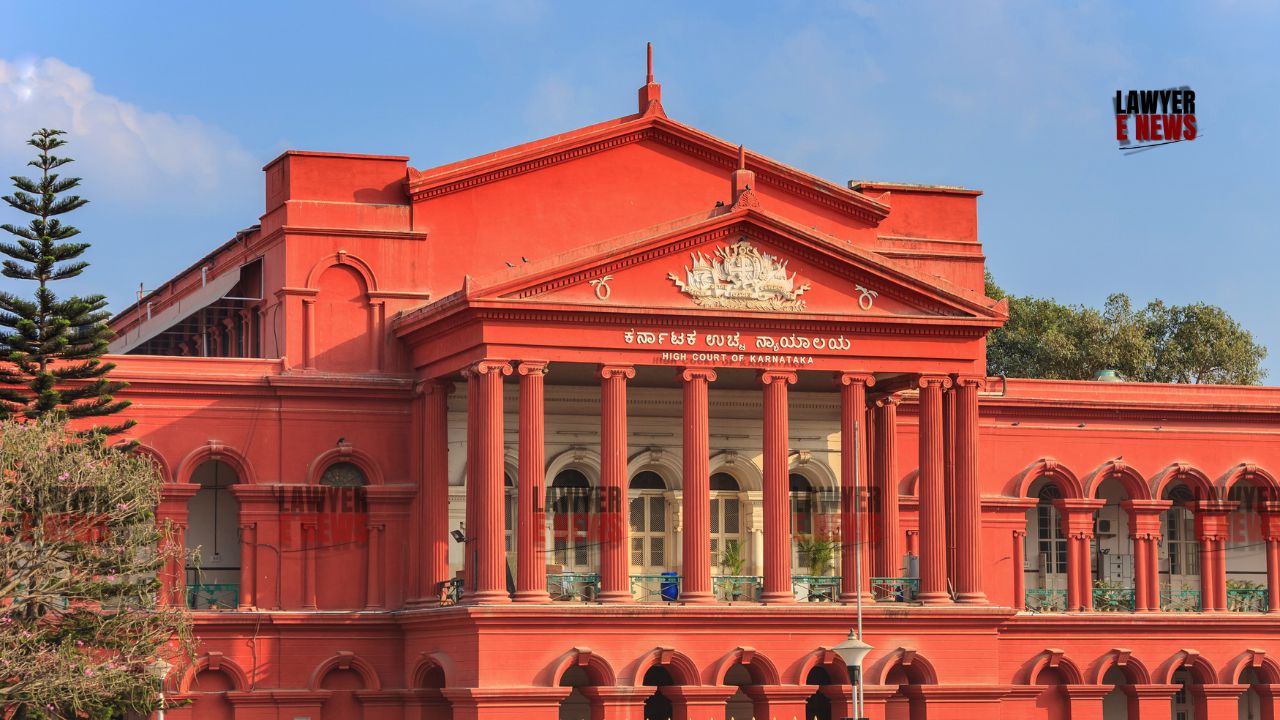-
by Admin
15 February 2026 5:35 AM



Justice Srishananda emphasizes compliance with legal limits on fines while upholding Section 138 conviction. In a significant ruling, the High Court of Karnataka, presided by Justice V. Srishananda, upheld the conviction of Sri A.M. Harish Gowda @ A.M. Harisha under Section 138 of the Negotiable Instruments Act for issuing a dishonored cheque of Rs.2,00,000/-. The court, however, reduced the fine imposed by the lower courts, reinforcing the statutory limits on fines and emphasizing the proper application of legal principles in cheque bounce cases.
The case began when the respondent, Sri Chaluvaraju H.S., lodged a complaint under Section 200 of the Negotiable Instruments Act. He alleged that on March 25, 2015, the petitioner, Sri A.M. Harish Gowda, borrowed Rs.2,00,000/- for legal necessities and issued a cheque dated April 29, 2015, drawn on Navanagara Urban Co-operative Bank Ltd., K.R. Nagar Branch. When presented for payment, the cheque was dishonored due to insufficient funds. Despite receiving a legal notice, the petitioner neither repaid the amount nor responded, prompting the respondent to file a complaint.
The High Court confirmed the conviction, noting that the complainant successfully met the initial burden of proof. “The initial burden cast on the complainant has been discharged by invoking the presumption available under Section 138 of the Act,” the court stated. The complainant’s evidence, including the dishonored cheque, bank endorsement, and legal notice, stood unchallenged by the petitioner.
Justice V. Srishananda observed that the petitioner failed to provide substantial rebuttal evidence against the presumption of debt or liability. The defense’s claim of cheque misuse was unsupported by any evidence or legal action, such as filing a police complaint. “The accused did not choose to lead any rebuttal evidence,” highlighted the judgment, underscoring the petitioner’s inability to counter the presumption effectively.
Addressing the excessive fine issue, the court found that both the Trial Court and the First Appellate Court exceeded the permissible limit. “The learned Trial Magistrate has no power to impose a fine more than double the cheque amount,” the court remarked. Consequently, the fine was reduced from Rs.4,30,000/- to Rs.3,25,000/-, ensuring justice and compliance with statutory limits.
Justice V. Srishananda stated, “Under the circumstances, imposing double the cheque amount as fine is uncalled for,” emphasizing the court’s commitment to fair sentencing within legal boundaries. He further noted, “The amount of cheque being Rs.2,00,000/-, as per Section 80 of the Act, interest at the rate of 18% is to be ordered.”
The High Court’s decision to reduce the fine while upholding the conviction demonstrates the judiciary’s balanced approach in cheque bounce cases. It underscores the importance of adhering to statutory limits on fines while affirming the presumption of debt under Section 138 of the Negotiable Instruments Act. This judgment serves as a precedent, reminding parties of the critical need for evidence and the consequences of failing to rebut legal presumptions effectively. The modified order mandates that the fine be paid by 10th July 2024, with a default resulting in six months of simple imprisonment.
Date of Decision: 4th June 2024
Sri A.M. Harish Gowda @ A.M. Harisha vs. Sri Chaluvaraju H.S.
